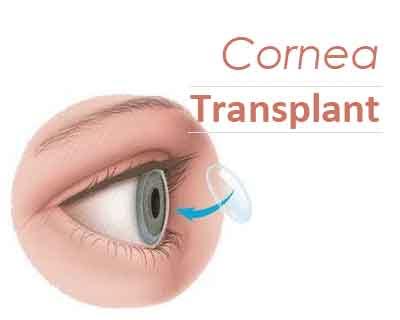- Home
- Editorial
- News
- Practice Guidelines
- Anesthesiology Guidelines
- Cancer Guidelines
- Cardiac Sciences Guidelines
- Critical Care Guidelines
- Dentistry Guidelines
- Dermatology Guidelines
- Diabetes and Endo Guidelines
- Diagnostics Guidelines
- ENT Guidelines
- Featured Practice Guidelines
- Gastroenterology Guidelines
- Geriatrics Guidelines
- Medicine Guidelines
- Nephrology Guidelines
- Neurosciences Guidelines
- Obs and Gynae Guidelines
- Ophthalmology Guidelines
- Orthopaedics Guidelines
- Paediatrics Guidelines
- Psychiatry Guidelines
- Pulmonology Guidelines
- Radiology Guidelines
- Surgery Guidelines
- Urology Guidelines
Gender Differences in efficacy of cornea transplants: Study

A new study of patients undergoing corneal transplants indicates that subtle differences between men and women may lead to poorer outcomes for a woman who has received a cornea from a male donor.
The research, published in the American Journal of Transplantation, suggest that gender matching may be beneficial to potentially reduce the risk of failure and rejection in patients undergoing corneal transplantation.
In the study, a team led by Professor Stephen Kaye, from the University of Liverpool and the Royal Liverpool University Hospital; and Cathy Hopkinson from NHS Blood and Transplant, investigated whether donor and recipient gender incompatibility influences corneal transplant rejection and failure up to five years post-transplant.
Failed or rejected
More than 18,000 patients were identified in the UK who had undergone a first corneal transplant. While over 80 per cent of all patients included still had a functioning graft at five years, a higher proportion of male to female transplants failed or were rejected during this time, when compared to gender matched transplants.
For every 1,000 people transplanted with a gender-matched cornea, on average 180 will fail, compared to 220 for male-to-female mismatched grafts.
The effect of gender matching was especially evident in patients with Fuchs endothelial dystrophy which affects a thin layer of cells that line the back of the cornea, called corneal endothelial cells. These cells regulate the amount of fluid inside the cornea. An appropriate fluid balance in the cornea is necessary for clear vision
Incompatibility
Of 4,046 patients with Fuchs endothelial dystrophy, 18 per cent of male-to female mismatched grafts failed compared to 12 per cent of female-to-female transplants. After risk adjustment, female-to-female transplants were 40 per cent less likely to fail and 30 per cent less likely to reject compared with male to female mismatches.
Professor Kaye, said: “These findings are most likely a result of H-Y antigen incompatibility associated with the male Y chromosome. Females do not have a Y chromosome so there is no H-Y incompatibility from female donors to male patients.
“This effect, however, is not reciprocated when the roles are reversed that is, when male donors are transplanted to female recipients.”
Long term impact
The paper states that further studies will be necessary to confirm the findings and to fully understand the reasons why gender matching is so important in corneal transplantation.
Further investigation could result in the justification of potentially allocating corneas from male donors to male recipients and those from female donors to either female or male recipients.
Professor Kaye added: “If confirmed, this would be relatively straightforward to put into place without delay in donor tissue allocation to patients or any significant added cost. The long-term impact this could have on patient care may be substantial.”
You can read the full article by clicking on the following link :
C L Hopkinson, V Romano, R Kaye, B Steger, R M K Stewart, M Tsagkataki, M N A Jones, D F P Larkin, S B Kaye. The influence of donor and recipient gender incompatibility on corneal transplant rejection and failure. American Journal of Transplantation, 2016; DOI:10.1111/ajt.13926

Disclaimer: This site is primarily intended for healthcare professionals. Any content/information on this website does not replace the advice of medical and/or health professionals and should not be construed as medical/diagnostic advice/endorsement or prescription. Use of this site is subject to our terms of use, privacy policy, advertisement policy. © 2020 Minerva Medical Treatment Pvt Ltd